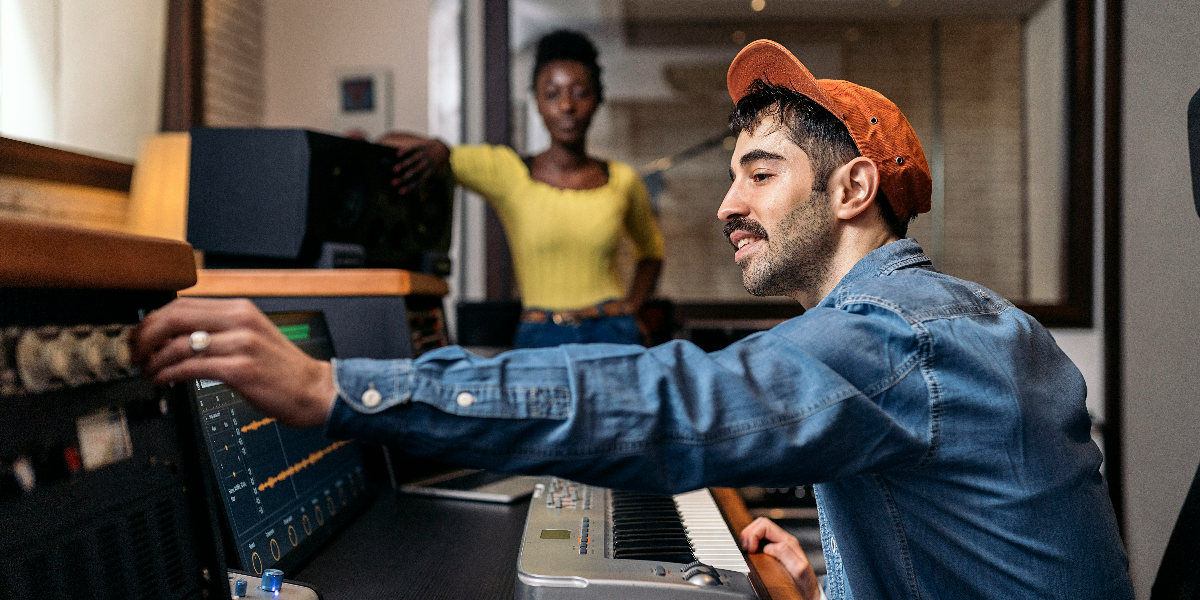The music industry has long been a space where collaboration, creativity, and business interests intersect. One of the most intriguing and often misunderstood aspects of this world is the practice of artists giving away their songs to other musicians. While some artists write songs exclusively for themselves, others find that their creations might be better suited for a different voice or artistic style. This article explores why artists choose to give away their songs, the financial and creative implications, and how this practice has shaped the music industry.
Read also: Exploring How Musicians Can Exercise Their Visual Creativity
The Creative and Artistic Reasons Behind Giving Away Songs
At its core, music is an art form, and artists often write songs that may not fit their personal brand, voice, or creative vision. In these cases, offering a song to a fellow musician can be an act of artistic generosity, ensuring that the music reaches its full potential.
Better Fit for Another Artist
One of the most common reasons an artist gives away a song is that they recognize it would be better suited for another performer. A songwriter might pen lyrics with a certain voice in mind but later realize that their own vocal range or style doesn’t do the composition justice. Instead of letting the song go unheard, they offer it to a peer whose musical sensibilities align better with the track’s theme or tone.
Evolving Artistic Direction
Artists grow and change throughout their careers. A song written during one phase of their journey may no longer reflect their current artistic identity. Instead of discarding these songs, they may pass them on to artists who are better positioned to bring them to life. For example, an artist transitioning from pop to a more alternative style might decide to give their unreleased pop songs to a musician who is still active in that genre.
Collaboration and Mutual Respect
Music thrives on collaboration, and many artists enjoy working with their peers to create something special. Sometimes, giving away a song is a gesture of goodwill—an act of mutual respect between musicians. If an artist believes that a fellow performer could elevate the song beyond what they themselves can do, they may offer it as a gift or as part of a collaborative effort.
Maximizing a Song’s Potential
A great song deserves to be heard, and sometimes an artist acknowledges that their own version of a track might not receive the attention it deserves. By giving the song to a more established or genre-appropriate artist, they increase the chances of it reaching a wider audience and making a greater impact.
The Business and Financial Considerations
Beyond artistic reasons, the decision to give away a song often comes down to strategic business moves and financial gain. Songwriting is a revenue-generating industry in itself, and for some artists, it is a crucial aspect of their career.
Songwriting as a Revenue Stream
Many artists, particularly those who also work as songwriters, see selling or licensing their songs as an additional income source. In genres like pop, R&B, and country, it’s common for performers to record songs written by others. A songwriter might choose to sell a song rather than release it themselves, allowing them to focus on their strengths while still profiting from their work.
Publishing and Royalties
Even when an artist gives away a song, they often retain songwriting credits, which means they earn royalties every time the song is streamed, sold, or performed. In some cases, this can be more lucrative than releasing the song themselves. If a song becomes a massive hit under another artist, the original songwriter can receive significant long-term income from publishing rights.
Strategic Career Moves
Giving away a song can sometimes be a strategic move to build relationships within the music industry. By providing a hit song to a major artist, a lesser-known songwriter or musician can gain credibility and attract more opportunities. This kind of networking can lead to future collaborations, songwriting deals, or even their own breakthrough moment as a recording artist.
Influence of Record Labels and Contracts
In some cases, artists don’t have complete control over whether they keep or give away a song. Record labels and producers often have a say in which songs make it onto an album and may suggest that certain songs be passed on to other artists. Labels look for commercially viable hits, and if they believe a song has more potential with a different performer, they might push for a song transfer.
Industry Practices and Genre-Specific Trends
Different genres have different approaches to songwriting and song transfers, which influences how and why artists give away their music.
Pop Music and Songwriting Teams
Pop music, in particular, is built on a foundation of professional songwriters who create tracks for artists to record. Many of today’s biggest pop hits were originally written by someone other than the performer. Artists like Sia, Ed Sheeran, and Max Martin have written numerous songs for others, creating some of the most successful chart-topping hits.
Hip-Hop and R&B Collaborations
Hip-hop and R&B have a strong culture of collaboration, where songs and lyrics are frequently exchanged between artists. While ghostwriting remains a sensitive topic in hip-hop, songwriting contributions from peers are widely accepted in R&B, where singers often rely on skilled songwriters to craft lyrics and melodies that suit their vocal styles.
Country Music and Songwriters
In country music, it’s common for artists to record songs written by professional songwriters. Nashville’s songwriting culture is centered around the idea that a great song can be performed by different artists. Many legendary country singers have recorded songs written by Nashville’s songwriting community rather than penning their own lyrics.
Famous Examples of Songs Given Away
Throughout music history, there have been numerous instances where songs were given away and became massive hits for other artists.
- “Umbrella” – Rihanna: Originally written for Britney Spears, but it was ultimately given to Rihanna and became one of her most iconic songs.
- “Irreplaceable” – Beyoncé: Written by Ne-Yo, who initially considered recording it himself but later gave it to Beyoncé, where it became a chart-topping success.
- “Nothing Compares 2 U” – Sinéad O’Connor: Written by Prince, but O’Connor’s version became the definitive rendition of the song.
Ethical and Personal Considerations
While giving away songs can be a beneficial practice, it also comes with ethical and personal dilemmas.
Fair Compensation and Credit
Ensuring that songwriters are properly credited and compensated is crucial. Some songwriters remain uncredited (ghostwriters), which can lead to controversy and disputes over ownership and royalties.
Emotional Connection to Songs
Artists often develop deep emotional connections to their songs, making it difficult to give them away. Even if a song doesn’t fit their brand, parting with it can feel like giving away a piece of themselves.
The Regret of Letting a Hit Go
There are cases where artists regret giving away a song, especially if it becomes a massive hit for someone else. Seeing a song they passed on reach commercial success can be bittersweet.
Read also: Social Media Engagement Strategies for Musicians
The Future of Song Transfers in Music
With the rise of digital collaboration and AI-assisted songwriting, the practice of giving away songs is likely to evolve. Online platforms make it easier for artists to share and sell songs, and AI tools may play a role in creating songs that can be distributed among different artists.
The practice of artists giving away their songs to peers is deeply embedded in the music industry. Whether for creative, financial, or strategic reasons, this exchange of music allows songs to find the right voice and reach their full potential. While there are challenges and regrets involved, song transfers continue to shape the industry, ensuring that great music finds its way to audiences worldwide. Whether through collaboration, business deals, or artistic vision, this tradition remains a key part of how music is created, shared, and enjoyed.














